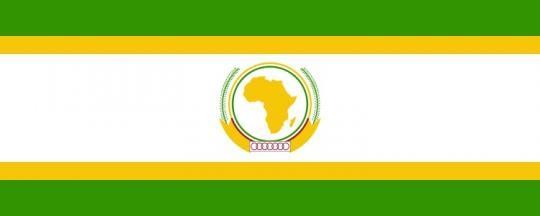The African Union Peace and Security Council has responded harshly to a decision by the Government of Sudan to block its delegation from visiting the disputed Abyei Area.
AU diplomats served as mediators in oil talks between Sudan and South Sudan and they have joined Sudan in opposing a ‘unilateral’ referendum in the disputed Abyei border region. But they also criticized the country for rejecting an AU proposal on how to resolve the Abyei dispute.
The Council decided last July that it would visit Abyei to see both UN peacekeepers there as well as local residents. The visit was scheduled for 22-23 October but was later postponed until this weekend so as not to coincide with the presidential summit held in Juba on 22 October.
After a meeting on Saturday, the AU Security Council disclosed that it was “unable to take the visit to Abyei as planned… due to the insistence of Sudan that the visit be postponed for contrived security reasons.”
“Council considers this to be an obstruction to the discharge of its responsibilities,” the AU body said in a resolution passed at the meeting.
The resolution is one of the AU body’s most strongly worded statements on Sudanese affairs to date, as well as a precise accounting of its diplomatic stance on the current situation.
In one of several warnings in the statement, the Council stressed that “those who obstructed its visit should bear full responsibility for any resulting negative development in the Area.”
The Council added that it “demands that Sudan must refrain from obstructing its work and extend full cooperation in support of the AU’s efforts to manage and resolve the situation in Abyei.”
The AU body contends that its visit to Abyei is aimed at defusing tension on the ground and averting “unilateral actions.”
Support for South Sudan-backed proposal
Although the African Union continues to oppose the ongoing unilateral poll by the Ngok Dinka community, its official position on Abyei is still that it fully accepts the 2012 proposal of the AU High-Level Implementation Panel, which would exclude most Misseriya from voting in the referendum.
This proposal has been accepted by the South Sudanese government but rejected by the Sudanese side, a fact noted by the resolution yesterday: “Council once again welcomes South Sudan’s acceptance of the Proposal and notes that Sudan has not yet accepted it.”
The resolution also explicitly urges the UN Security Council to endorse the AUHIP Proposal. This position is diplomatically significant because it appears to revive the October 2012 ultimatum of the AU Council, which gave Sudan and South Sudan six weeks in which to reach an agreement on the status of Abyei or else accept that it would endorse the AUHIP Plan as “final and binding” before referring it to the UN for further endorsement.
The threat was never acted on and ever since the AU Council has been largely silent on the issue – until yesterday. Likewise, the UN Security Council never gave full endorsement to the AUHIP proposal. In its last resolution on Abyei, passed in May 2013 to extend the mandate of UNISFA, the UN body endorsed the AUHIP’s role in mediation but stopped short of taking a direct position on their proposal.
Temporary administration and security
Last Tuesday’s summit meeting of President Kiir and President Bashir resulted in a decision to expedite the formation of a local council, administration and police force in the disputed border area.
The top-level commitment builds on earlier more detailed agreements including the 20 June 2011 Agreement on the Temporary Administrative and Security Arrangements for the Abyei Area.
AU diplomats have welcomed this development, but also imply that the situation is still in danger of destabilizing. The Council “warns all stakeholders in Abyei to refrain from taking any unilateral action likely to complicate the situation, and, in this regard, calls for maximum restraint.”




